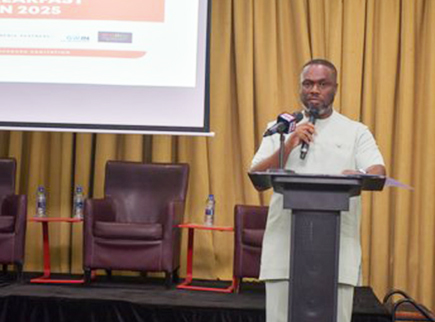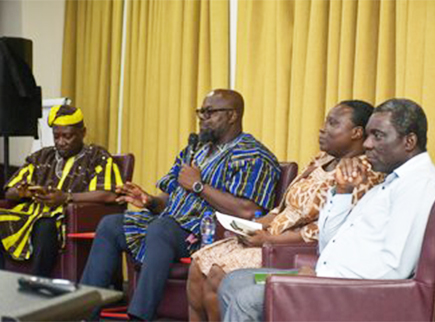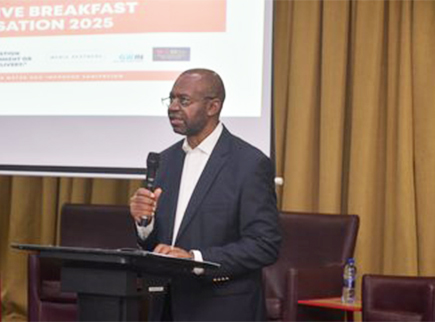Works, Housing and Water Resources Minister Kenneth Gilbert Adjei has emphasised more stakeholder collaboration in the delivery of water, sanitation and hygiene (WASH) services.
He said the reallocation of WASH sector responsibilities following the realignment of the Ministry of Sanitation and Water Resources (MSWR) should not be seen as a setback, but rather a strategic opportunity to strengthen service delivery through deeper stakeholder collaboration.
The current Mahama Administration realigned the then MSWR to fulfill a campaign promise by the ruling National Democratic Congress (NDC) in the run-up to Ghana’s 2024 general elections.
The realignmment, which reduced the Ministries from 29 to 23, was part of an administrative restructuring initiative aimed at enhancing efficiency and streamlining government operations.

Mr Adjei, at a recent meeting of actors in WASH services delivery said: ““The dissolution of the erstwhile ministry is a significant development and should serve as a pivot point for strengthening the WASH ecosystem.”
He added: “Let us look forward constructively and not dwell on institutional shifts.”
Mr Adjei was delivering an address in Accra, at a recent discussion on the shift of the Water Ministry, organised by World Vision, Ghana (WVG), a Christian, non-government organisation in Ghana focused on relief, development and advocacy, jointly with the Ministry of Works, Housing and Water Resources and other stakeholders and partners.
The discussion, which was an annual event, and dubbed 4th Multi-Stakeholder Executive Breakfast was an initiative by World Vision Ghana in collaboration with the Ministry of Works, Housing and Water Resources and Ministry of Local Government, Chieftaincy and Religious Affairs.
It was held on the theme: The Dissolution of the Ministry of Sanitation and Water Resources: A Strategic Realignment or a Potential Setback.”
The objective of the conversation was to review the realignment and Water Resources and propose practical ways to accelerate the delivery of safe drinking water, sanitation and hygiene in Ghana.
The Minister said: “The structures may evolve, but our collective mandate remains the same ensuring that every household, school, clinic, and community has access to decent WASH services.”
Mr Adjei reaffirmed government’s commitment to deliver safe, sustainable, and inclusive water and sanitation services across the country.
Emphasising more collaboration among WASH service providers, Mr Adjei said effective coordination, harmonised processes and private sector participation would ensure a rapid progress towards the Sustainable Development Goals (SDGs), particularly Goal Six which seeks universal access to safe water and sanitation

He commended Ghana’s development partners, mentioning WVG, for their assistance in delivering improved WASH services.
Mr Adjei gave the assurance that the government would continue to create an enabling environment for greater private sector involvement, especially in hard-to-reach and underserved communities.
“Our doors are always open for dialogue. We remain committed to partnerships that promote access to safe, affordable, and resilient water systems,” he said.
In a contribution to the discussion, Mr Ben Yaw Ampomah, Former Executive Secretary, Water Resources Commission, was of the view that the step could negatively impact progress so far made in Ghana’s WASH sector.
Mr Jean-Claude Mukadi, the National Director of World Vision, however said: “whether under one ministry or two, we should only be interested in one outcome, greater prioritization and increase investment for accelerated and inclusive Washington services delivery that leaves no one behind.”

